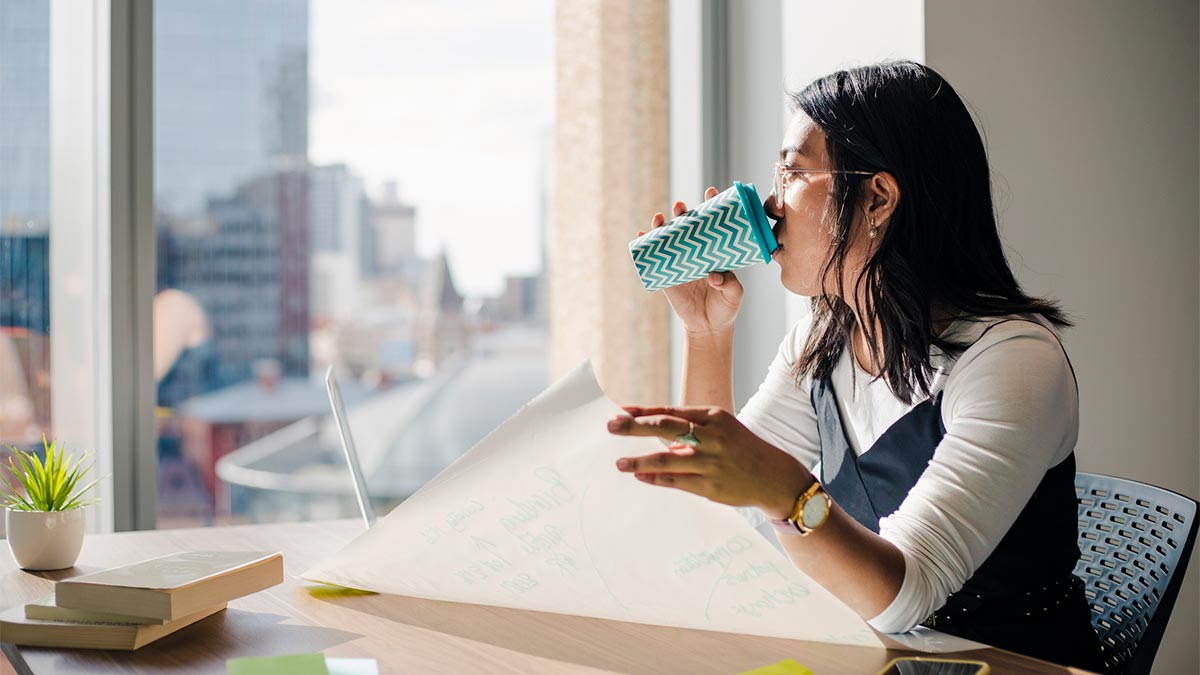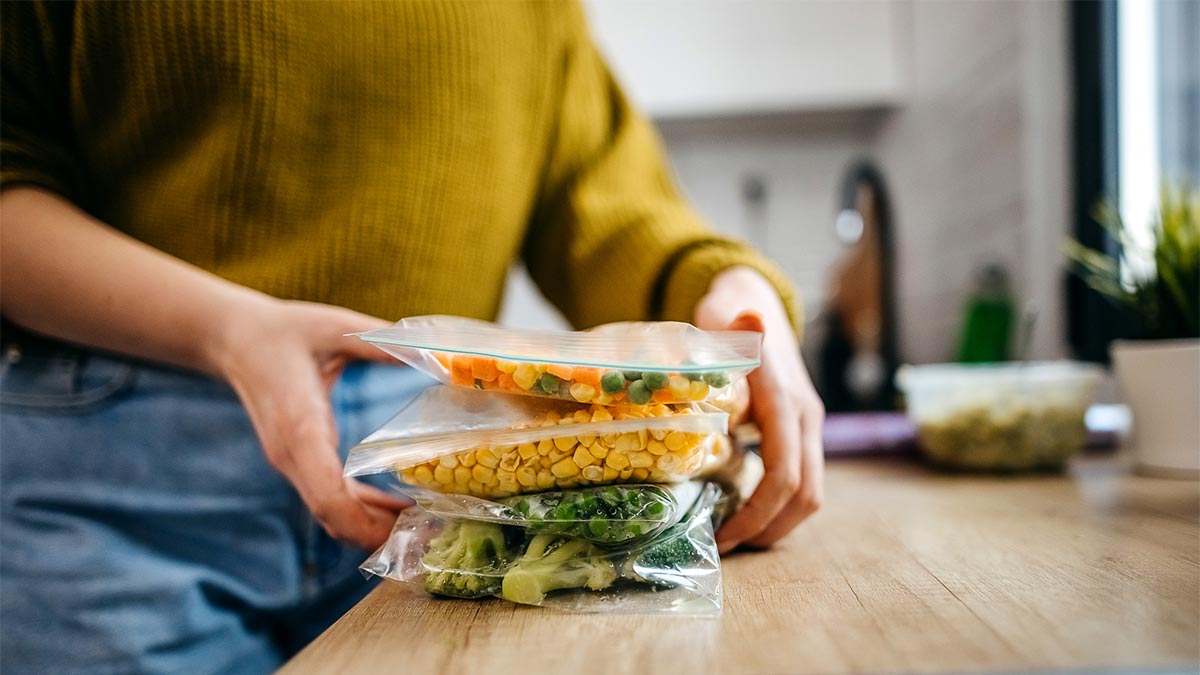Australians have fallen in love with air fryers. Discover how they work, their energy efficiency, what to avoid and which type is best for you.
How long does it take for common products to decompose?

Many everyday and so-called ‘green’ items take so long to break down that they’ll still be here long after you’re gone… and your grandchildren’s grandchildren.
Every year, Australians generate millions of tonnes of waste, with the country’s latest National Waste Report showing 74.1 million tonnes of waste were generated in 2018-19.
But not all waste is the same. When sent to landfill, some items will take only a few months to break down, while others take many centuries… if they break down at all.
Here are some common items that may outlive you.
Disposable coffee cups
20-30 years
Takeaway coffee cups are handy for when you need a caffeine hit on the go. And the cups are repeatedly (but wrongly) thought to be recyclable as they appear to be made of cardboard.
Unfortunately, most single-use, disposable coffee cups are lined with plastic which causes them to take 20 to 30 years to break down after being disposed of. According to Sustainability Victoria, 2.7 million single-use coffee cups every day, adding up to one billion cups every year – all of which take decades to break down.
Reusable ‘keep’ cups are a great alternative as they can be used repeatedly for years. If you struggle to remember to bring a keep cup, try having several – one for at home, one in the car and one at work, so you’ve always got one handy when heading to a café.
Coffee pods
150-500 years
Coffee pod (or capsule) machines have boomed in popularity in recent years, with the market expected to exceed US$9.8 billion in the next 10 years.
That’s great news if you like quality coffee at home, but not such great news for those concerned with waste. The coffee pods used in such machines can take from 150 to 500 years to decompose depending on the material they’re made from.
To combat this wastage, some recycling companies have started recycling pods made from aluminium, while other manufacturers have created biodegradable pods that can break down in months (instead of centuries).
Consider investing in an at-home espresso machine where you simply can wash and reuse the parts and dispose of the coffee grounds in your compost or organic waste bin.

A disposable coffee cup is handy but takes decades to break down, while a keep cup can be used repeatedly for years. Photo: Getty.
Disposable nappies
Up to 150 years
There is no denying disposable nappies are a huge time-saver for parents. They don’t have to be washed and dried once soiled, are easy to fasten, and are generally quite leak-proof compared to traditional cloth nappies.
The downside to disposable nappies is that they take up to 150 years to break down – and as any parent can attest, you go through a lot of nappies before your child is toilet trained.
Luckily, there are lots of alternatives beyond folding a terry cloth square.
Modern reusable options include fitted cloth nappies, and ‘pocket’ nappies with removable, absorbent inserts. You can also get biodegradable disposable nappies, though these still take decades to break down.
Newspapers and magazines
4-6 weeks
It doesn’t take long for people to forget yesterday’s news, and it doesn’t take long for yesterday’s newspaper to decompose either.
Newspaper takes about four to six weeks to breakdown in soil, and all paper (including book pages and glossy magazines) can be recycled in Australia into new products.
But if you have a flourishing garden, you may want to save that newspaper, shred it up, and place it in your compost bin where it can enrich the compost with carbons. Don’t use glossy magazines though, as they can contain inks and coatings that don’t break down as well – recycle them instead.
Glass bottles and jars
1,000+ years
There’s good news and bad news when it comes to glass. The good news is that glass is 100 per cent recyclable and can be turned into new glass products or broken down and turned into sand. This sand can then be used in the construction industry, and in the building of new roads. Recycling glass also means new sand isn’t being mined, which helps conserve our environment.
However, the bad news is that if glass ends up in landfill, it can take thousands of years to break down – if at all.
By 2030, it’s expected that all Victorian households will have four kerbside bins, including a purple-lidded bin specifically for recycling glass.

Freezing leftover vegetables to use later is a good way to reduce food waste. Photo: Getty.
Polystyrene packaging
Never
You just bought a new appliance and are eagerly unwrapping it at home. As you pull it out of the box, you remove fitted white polystyrene from the new product, which has been used to keep the fragile product safe in transit. And if you put that polystyrene in your rubbish bin, it will be sent to landfill where it will never break down.
For that reason, some businesses in Australia are moving away from packaging products in polystyrene.
Opt for products that don’t include polystyrene (including meat trays, cups and packing peanuts) where possible. Polystyrene can’t be placed in your kerbside recycling bin, but you can take it to selected recycling centres to keep it out of landfill.
Food scraps
Days to months
Food scraps seem harmless, right? An apple core, or a bit of leftover pasta sent to landfill can’t be that bad since it’s all organic material. But there’s a big difference between food scraps that are composted (or sent to a composting facility) and those that end up in landfill.
Landfills lack oxygen, meaning the oxygen-eating bacteria that speed up the decomposition process can’t thrive in that environment. This causes food to decompose anaerobically, which produces methane, a greenhouse gas.
Food scraps put in a compost bin or in your kerbside organics bin, however, get turned into compost that is then used to grow new food. But the best option is to reduce your food waste overall. Storing your food correctly and only buying what you need can help reduce waste, plus there are some great recipes for using up leftovers.


